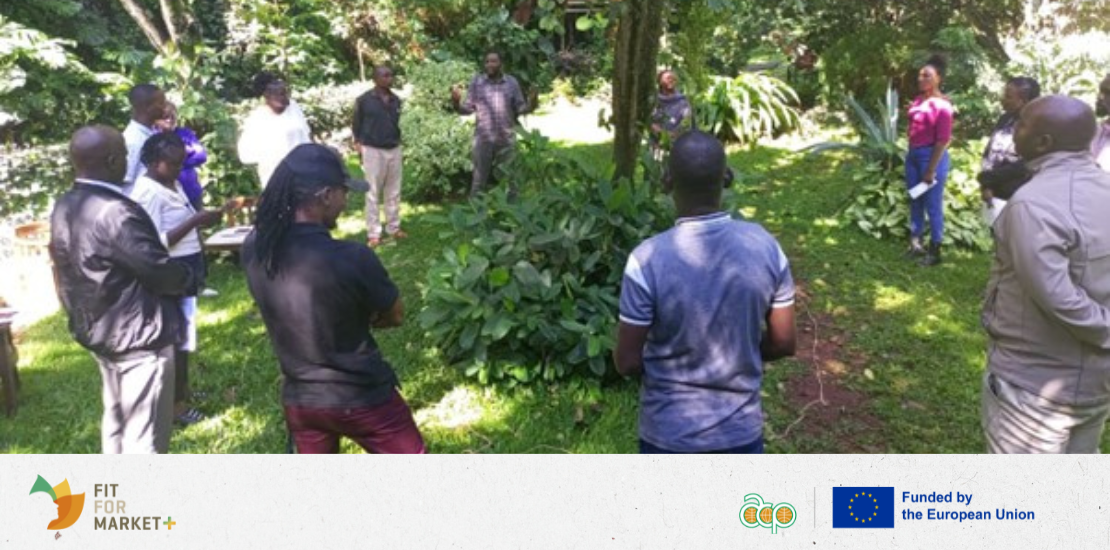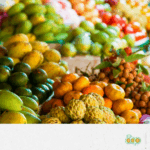- 06/05/2025
- Posted by: Sandra Borma
- Category: News

In the face of a series of health, climate, economic and geopolitical crises, the resilience of the horticulture sector in African, Caribbean and Pacific (ACP) countries is a strategic priority. The Fit For Market Plus (FFM+) programme, implemented by COLEAD with funding from the European Union and the OACPS, has been a driving force for change for three years, combining technical support, systemic action and innovation in the field. Designed from the outset to respond to post-COVID disruptions, FFM+ has gradually consolidated its position as a multi-level strategic lever capable of acting simultaneously with producers, institutions and markets.
A collective dynamic in the ACP network
Since its operational launch in 2022, the programme has received 1,095 applications for support from 54 OACPS member countries. To date, 620 development projects have been signed, 54% of which directly involve horticultural MSMEs or producer cooperatives. These projects are the beating heart of the programme: they reflect the ownership of the programme by the partner beneficiaries and COLEAD’s ability to respond to concrete needs on the ground.
A new generation of partner beneficiaries with different profiles
FFM+ attracts a large number of new actors: 77% of the supported MSMEs had never received support from COLEAD before. More local, more rooted in regional markets and often small in size, these companies and producer groups represent up to 87,500 producers. Although their export volumes to the EU are smaller, their impact on the local economy is significant.
Massive investment in training, knowledge transfer and know-how
Knowledge transfer and skills development are a constant priority. In three years, FFM+ has trained nearly 1,500 people in food safety, good agricultural practices and sustainability (FFM+ Outcome 1), 770 partner beneficiaries in business management, financing and economic resilience (Outcome 2), close to 300 actors contributing to strengthening links between MSMEs and producer groups (Outcome 3), an increasing number of business membership organisations (BMO) and their members to strengthen their economic and political role (Outcome 4), and approximately 200 representatives of SPS competent authorities (Outcome 5). In parallel, the COLEAD online training platform has exceeded 30,000 users, with nearly 12,000 new registrations in period 3 alone, from all OACPS member states.
Acting and innovating to transform agricultural practices
The COLEAD Research and Innovation brokerage has launched or completed more than 25 agronomic trials, covering key topics such as: integrated pest management for mangoes, avocados, carrots and tomatoes; the valorisation of agricultural waste, such as in Benin, where pineapple by-products are turned into animal feed; and alternative solutions to pesticides to secure access to European markets. Nearly 60 requests for emergency technical assistance were also handled, ranging from pesticide residue management to regulatory support for exports.
Multiplying synergies: FFM+ and national projects
FFM+ does not work alone. It works in active partnership with other country initiatives led by European Union delegations, the STDF, ENABEL and AFD, among others. Concrete actions are underway or in preparation in Côte d’Ivoire, Guinea, Uganda, Senegal, Gambia, Ethiopia and Zimbabwe.
This coordination makes it possible to pool resources, speed up the dissemination of good practices and respond more accurately to the specific needs of each country or region.
The tools developed through a multi-country programme such as FFM+ therefore benefit national programmes, which can reach many more partner-beneficiaries and implement more tailor-made development projects.
Strategic monitoring, influence and market access
In an environment of rapidly changing European standards, particularly those arising from the Green Deal, COLEAD supports its partners through active strategic monitoring. In addition, the www.agrinfo.eu platform enables horticultural stakeholders to better anticipate regulatory changes. Technical advocacy is also carried out in groups such as GlobalGAP, Freshfel, Fairmiles and the coalition against unfair trading practices.
Beyond the numbers, a coherent vision of development is needed: FFM+ contributes to food security, poverty reduction, gender equality (with its new integrated gender strategy) and the environmental transformation of ACP food systems. In three years, FFM+ has not only strengthened capacities: it has contributed to a collective transformation, rooted in the territories, open to innovation and fed by strong partnerships.
This activity is supported by the Fit For Market Plus (FFM+) programme, implemented by COLEAD within the Framework of Development Cooperation between the Organisation of African, Caribbean and Pacific States (OACPS) and the European Union. This publication receives financial support from the European Union and the OACPS. The content of this publication is the sole responsibility of COLEAD and can in no way be taken to reflect the views of the European Union or the OACPS.





